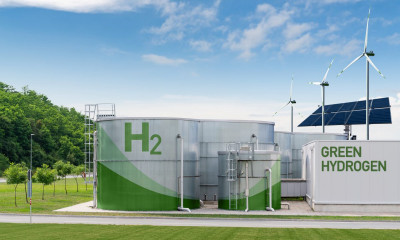Recognising the pivotal role of Technical and Vocational Education and Training (TVET) in addressing these challenges, the South African government aims to leverage the TVET ecosystem to train a substantial workforce capable of meeting the demands of the emerging green hydrogen industrial sector. However, the TVET system faces funding constraints, educational shortcomings, and an image problem, necessitating substantial investment, curriculum reform, and collaboration with sustainable industries to prepare for a just energy transition.
Project Overview
The central focus of this project is to explore skills foresight within the TVET-industry linkages, aiming to build anticipatory governance for South Africa’s future green hydrogen economy and value chains. The long-term goal is to enhance the employability of TVET graduates and develop local skills capacity aligned with the needs of the inclusive renewables (green hydrogen) economy.
Rationale for Skills Foresight
The project recognises the importance of skills foresight in navigating the dynamic landscape of the emerging green hydrogen economy. It aims to go beyond traditional approaches to skills planning, emphasising the critical role of qualitative methods in preparing the TVET system for anticipated changes.
Despite exploring green hydrogen energy in the initial stages, the benefits of sustainable green energy from socioeconomic impacts are yet to be understood and must be explored. To delineate the scope, this project aims to centre skills foresight as critical for improved skills governance and anticipation. The ongoing skills mismatch between the private sector and the higher education and TVET college system calls for the strengthening of skills governance, skills foresight, and skills anticipation systems.
Skills foresights are important for several reasons
- Building innovation and anticipation capacity: in a rapidly changing and decarbonising world, new technologies, industries, and job roles emerge while others become obsolete. Anticipating these shifts helps in identifying the skills that will be in demand in the future, as well as allowing for experimentation and innovation.
- Economic resilience: Anticipating skills needs is essential for maintaining a resilient economy. By understanding the changing demands of the job market, policymakers can align education and training programs to produce a workforce with the necessary skills. This ensures that industries can access skilled talent, reducing unemployment and boosting economic growth.
- Increased employment: Individuals who possess skills that are in high demand have better employability prospects. Skills anticipation empowers job seekers to make informed decisions about their education and career paths, increasing their chances of finding and creating rewarding and stable employment.
- Social inclusion and local participation: Skills anticipation promotes social inclusion by identifying the skills needed to improve labour absorption rates, particularly for underserved or marginalised communities. Importantly, this ensures the increased participation of local and previously disadvantaged demographics in the emerging renewables economy, particularly along gender lines.
Project Objectives
- Build skills in foresight, anticipation, systemic innovation, governance, and participatory capacity within the South African green hydrogen TVET Ecosystem.
- Create an enabling environment for actions toward alternative futures.
- Contribute to knowledge and capacity development for the green hydrogen economy and TVET ecosystem, supporting the just transition agenda in South Africa and across the continent.
- Develop knowledge products and innovative policy recommendations through workshop/consultation reports.
Expected Outcomes
- Build skills foresight, anticipation, systemic innovation, governance, and participatory capacity of the South African future green hydrogen TVET Ecosystem (policy owners and private industry) to foster a collective vision and futures consciousness.
- Create an enabling environment to encourage actions towards creating alternate futures.
- Contribute to the growing knowledge and capacity of the future green hydrogen economy and TVET ecosystem to support the emerging just transition agenda in South Africa and across the continent to accelerate ‘net-zero’ achievement.
- Develop knowledge products and innovative policy recommendations through workshop/consultation reports.









